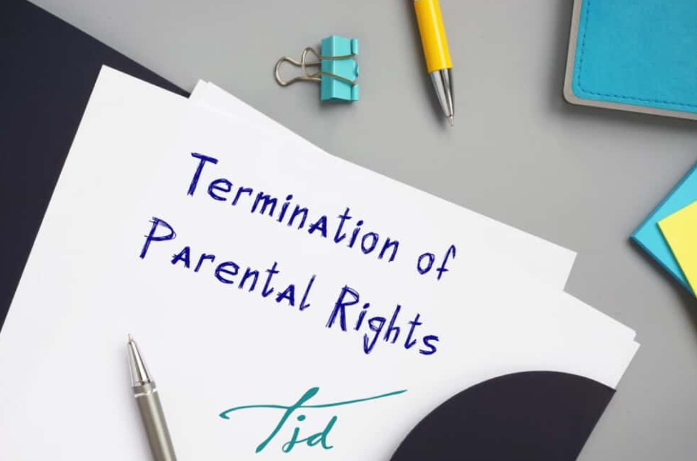Termination of Parental Rights Under the Law

Have you ever wondered what happens when parental rights are terminated under the law? In the 2021 fiscal year, parental rights were terminated 65,000 times in the United States. This marks a rise from the previous year when parental rights were terminated in 63,800 cases nationwide.
It’s a complicated and sensitive topic that raises numerous legal and ethical questions. From the legal grounds for termination to the consequences it has on both parents and children, there are many factors to consider, including the specific regulations outlined by Missouri abandonment laws.
In this discussion, we will explore the detailed steps involved in termination proceedings, the challenges faced by all parties involved, and the considerations that must be taken into account.
Legal Grounds for Termination
The termination of parental rights is a serious step that can permanently sever the legal relationship between a parent and their child. Various legal grounds can warrant the termination of parental rights.
- Abandonment – If a parent willingly and intentionally leaves the child without any contact or support for an extended period, it can be considered abandonment. The court will carefully evaluate the circumstances and determine if the parent has shown a lack of interest or intention to fulfill their parental responsibilities.
- History of substance abuse or mental illness that impairs their ability to care for the child adequately. The court will consider the impact of these conditions on the child’s welfare and make a decision based on what’s in the best interest of the child.
- Neglect or abuse of the child. If a parent fails to provide proper care, support, or supervision for their child, it can lead to the termination of their parental rights. This includes situations where the child is exposed to physical, emotional, or sexual abuse. The court takes the well-being and safety of the child as its utmost priority.
But is child support illegal? Child support is not illegal, nor is it optional—it’s a legal obligation, and child support is not only a financial matter. It also includes emotional well-being and the well-being of a child as a whole. The purpose of these legal grounds is to protect the child at all costs in all matters, whether it is legal clarity or parental accountability.
Factors Considered in the Process
Several elements were weighed when deciding if parental rights should end. One factor is a parent’s capacity to offer a secure, caring space for the child. Courts check if the parent has past neglect, abuse, or drug troubles endangering the youth. Parents got checked for their wants and need to provide for kids’ bodily, emotional, and school needs. This looks at things like providing good housing, healthcare, and education.
Another factor is that the involvement of parents signifies their active role in a kid’s life. Their frequent visits, participation in school events, and backing for the child’s overall growth show if they’ve established a steady and beneficial bond with them.
The parent’s history of criminal activity and any previous instances of violence are also taken into account, as the court’s primary focus is on what’s in the best interest of the child and ensuring their safety, stability, and well-being.
Steps Involved in Termination Proceedings
The first step is filing a petition with the court. This petition outlines the reasons why termination is being sought and presents evidence to support the claim. Once the petition is filed, a hearing date is set.
During the hearing, all parties involved, including the parents, will have the opportunity to present their case and provide evidence. The court will carefully consider the evidence and make a decision based on what’s in the best interest of the child.
If the court determines that termination is warranted, it will issue an order terminating parental rights. After the termination order is issued, the court will appoint a guardian for the child and establish a plan for the child’s future care and well-being. Termination of parental rights is a serious matter and should only be pursued when it’s clearly in the best interest of the child.
Consequences for Parents and Children
Parents and children can both face significant consequences as a result of the termination of parental rights. For parents, the most obvious consequence is the loss of legal and custodial rights over their children. This means that they’ll no longer have the ability to make important decisions regarding their child’s upbringing, such as education, healthcare, or religion.
Parents may also face emotional consequences, such as feelings of guilt, grief, or a sense of failure. The termination of parental rights can also impact a parent’s relationship with their child, as they may no longer have regular contact or visitation rights.
For children, the consequences of the termination of parental rights can be equally significant. They may experience a sense of loss and abandonment as their primary caregivers and sources of love and support are suddenly removed from their lives.
Children may face challenges in forming stable and secure attachments with new caregivers, which can impact their emotional and psychological development. The termination of parental rights can also have long-term effects on a child’s sense of identity and belonging, as they may struggle with questions about their biological family and their place in the world.
Challenges and Considerations for All Parties
All parties involved in the termination of parental rights face unique challenges and considerations.
For parents, the emotional toll can be overwhelming. The decision to terminate parental rights is often seen as a failure or a reflection of their inability to adequately care for their child. They may struggle with the practical implications of losing their parental rights, such as limited or no contact with their child, and the need to rebuild their lives without their child.
Children also face significant challenges when their parental rights are terminated. They may experience feelings of abandonment, rejection, and confusion. The loss of their biological parents can have long-lasting effects on their emotional and psychological well-being. Children may struggle with forming attachments and trusting others in the future. They may also face difficulties in understanding their identity and sense of belonging.
The court system and child welfare agencies also encounter challenges in the process of terminating parental rights. These include making difficult decisions about the child’s best interests and ensuring that all legal requirements are met. The well-being and safety of the child must be the primary consideration, but this can be a complicated task that requires careful evaluation of all relevant factors.
Conclusion
You have a responsibility to respect the dignity and rights of your child as a human being. Termination of parental rights should not be used as a way to escape your obligations or to punish your child for your failures.
You should always think of the consequences of your decision and the impact it has on yourself and your child. You should always act in good faith and the best interest of your child. You should always remember that your child deserves love, care, and respect, regardless of your parental status.




